By Kevin M. Hymel
One of the most precious resources in war, and the one most often in short supply, is sleep. Physical exhaustion, combined with the strain of combat, wears even the most young, physically fit men down. Advancing or retreating, bivouacked on the front lines or a bit to the rear, sleep, with all its recuperative qualities, is scarce.
During World War II, enemy snipers, artillery barrages, and the occasional “Bed Check Charlie,” single enemy aircraft which dropped bombs or buzzed the rear areas at night just to prevent soldiers from sleeping, kept adrenaline pumping and nerves on edge. American soldiers in Europe, however, improvised, using any flat surface as a bed and even learning to sleep standing up or snooze lightly while marching.
GIs learned the term “Hurry up and wait!” and made the most of it. Even before shipping out, soldiers learned the value of rest. During winter maneuvers in North Carolina, Lieutenant Van Mayhall could not find a place to bed down, so he reclined under a tree during a light rain, thinking, “I am sure my mother would have thought we would catch all sorts of colds, flu and pneumonia.”
During the fighting inland from the Normandy beaches, soldiers of the U.S. 101st Airborne Division, who fought for three days without proper food or sleep, suffered periods in which they would blank out, later unable to remember parts of the battles around Carentan.
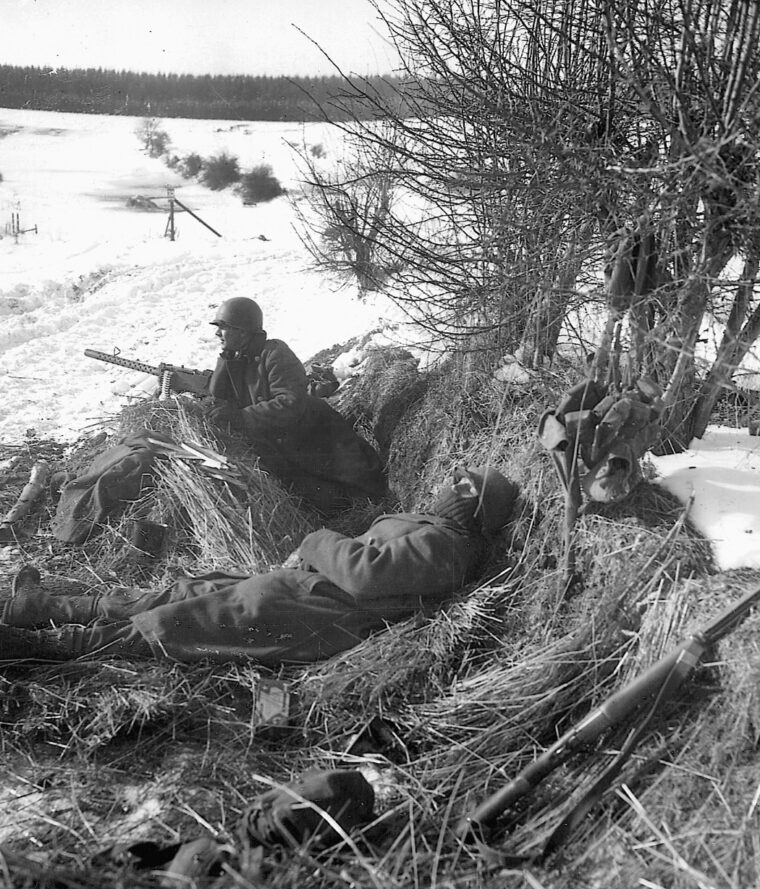
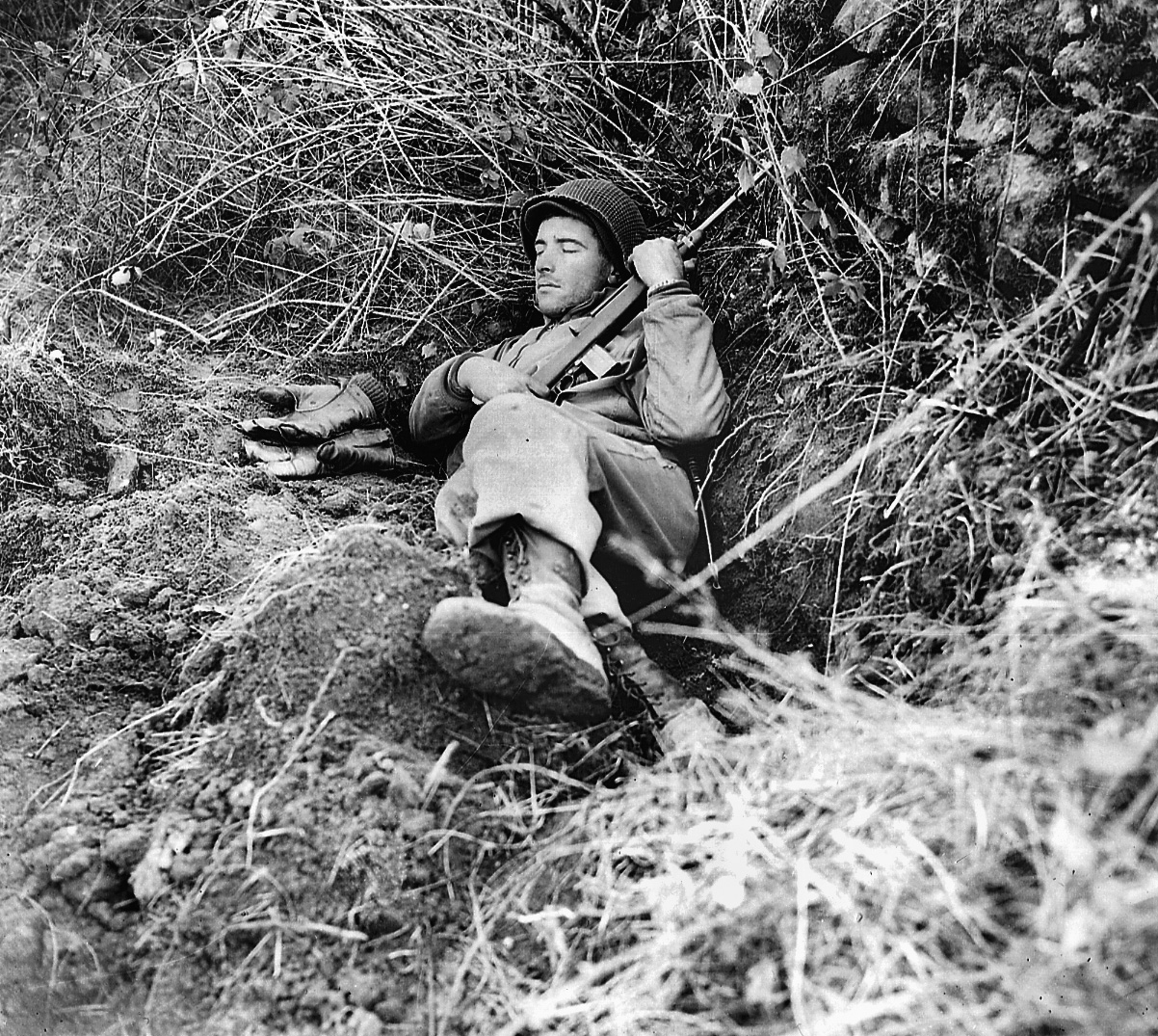
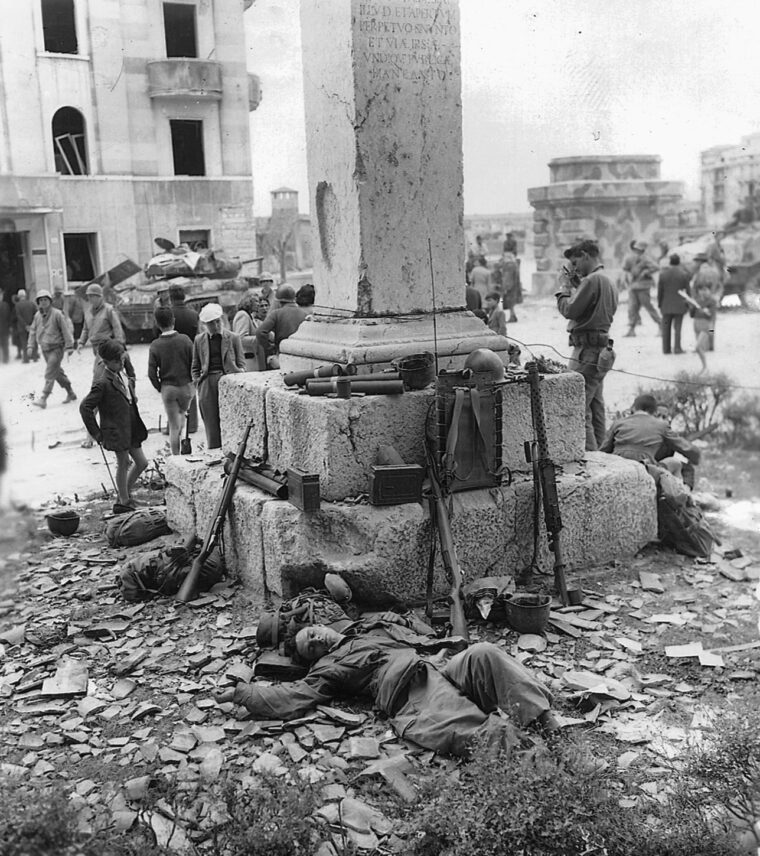
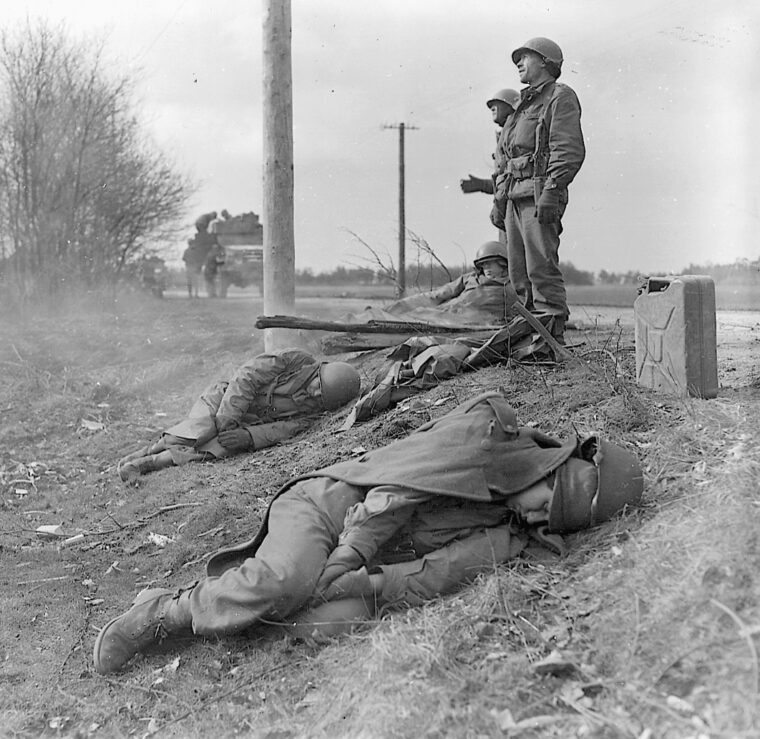
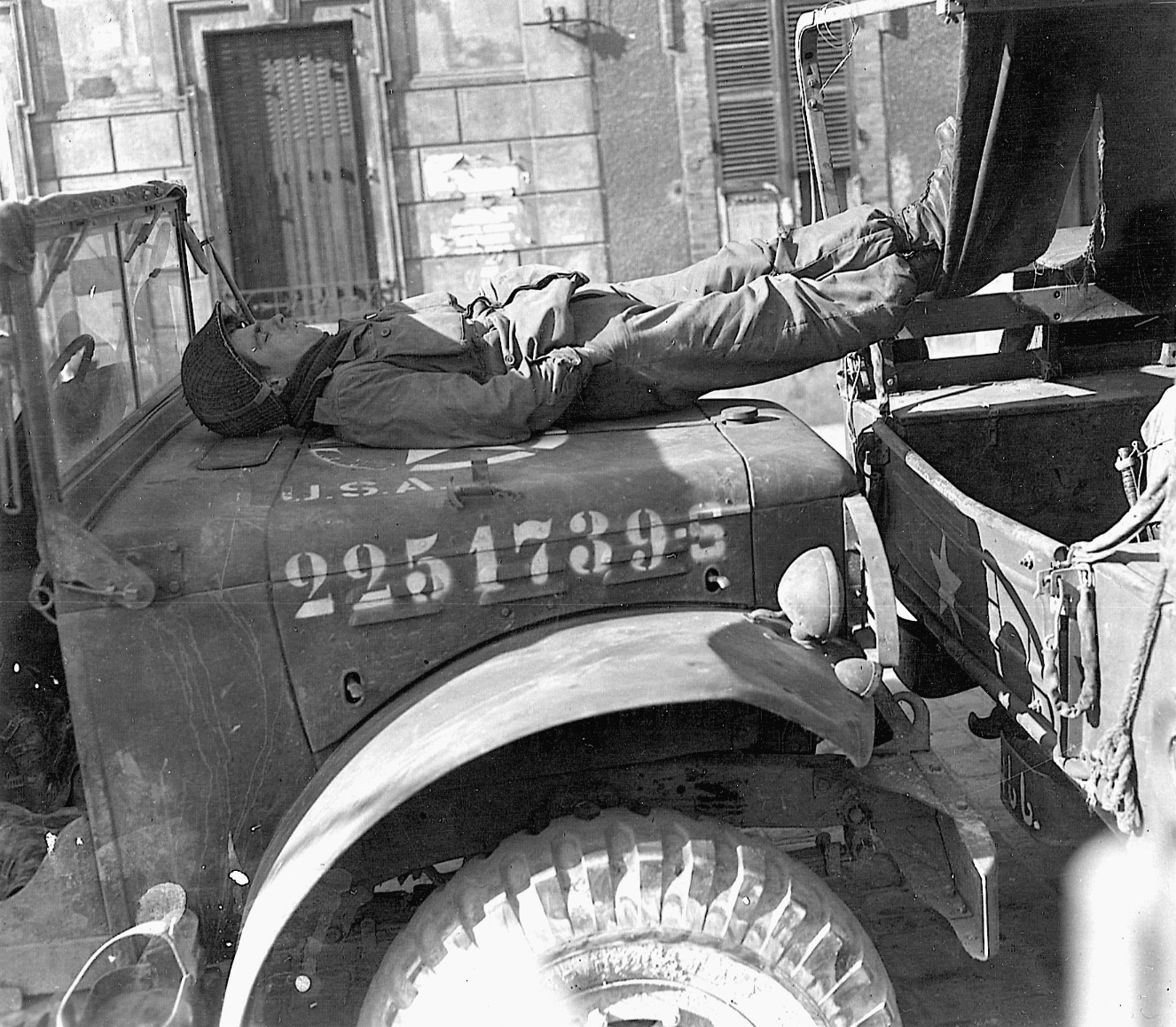
“Fatigue Makes Cowards of Us All … Men who do not rest, do not last.”
Even follow-up troops felt the tug of exhaustion long before reaching the battlefield. Private Roscoe Blunt with the 84th Infantry Division was known to have fainted on the march in from Omaha Beach. Weighed down with equipment, feet blistered and his shoulders rubbed raw from his field pack, he collapsed while other men marched over and around him. When he came to, a medic helped him get up and over to an isolated spot, but, he recalled,“when the medic spoke, I was unable to respond coherently for none of my senses seemed to be functioning.” Blunt was not alone. Nearly a quarter of the troops heading inland dropped out and had to be trucked to their final destination.
Tanker John P. Irwin, who battled his way into Germany with the 3rd Armored Division, often fell asleep when his tank was stopped. He said, “Sleep was just something that happened rather than being something someone actually did.” The story was the same for almost every soldier in Europe. Every veteran has a tale to tell of their most fatigued day in the military.
General George S. Patton, Jr., understood the importance of rest for his troops. When he issued orders to his commanders training for the liberation of France, he instructed them, “Fatigue makes cowards of us all. Men in condition do not tire … Men who do not rest, do not last.”
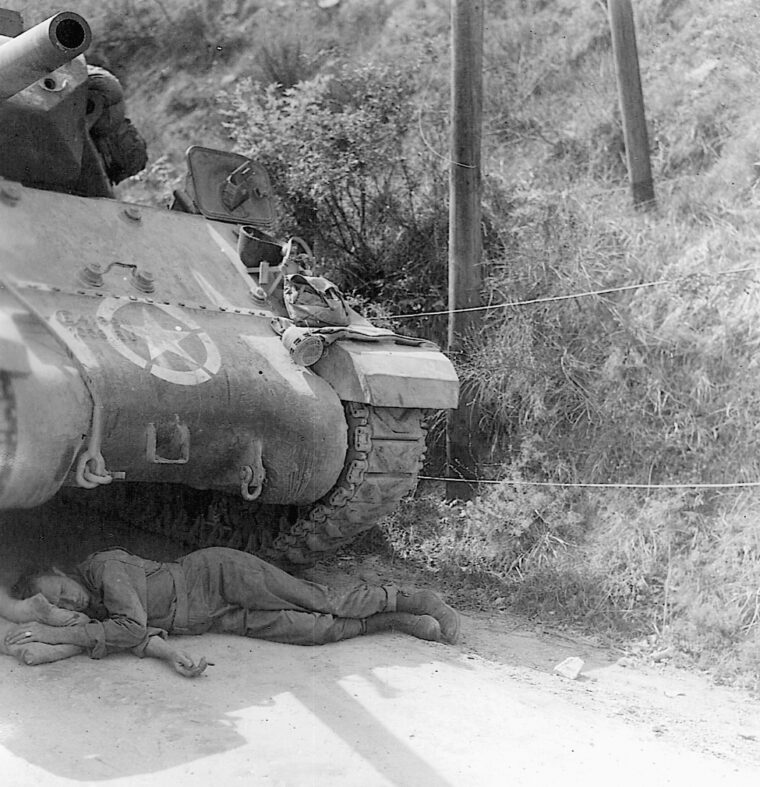
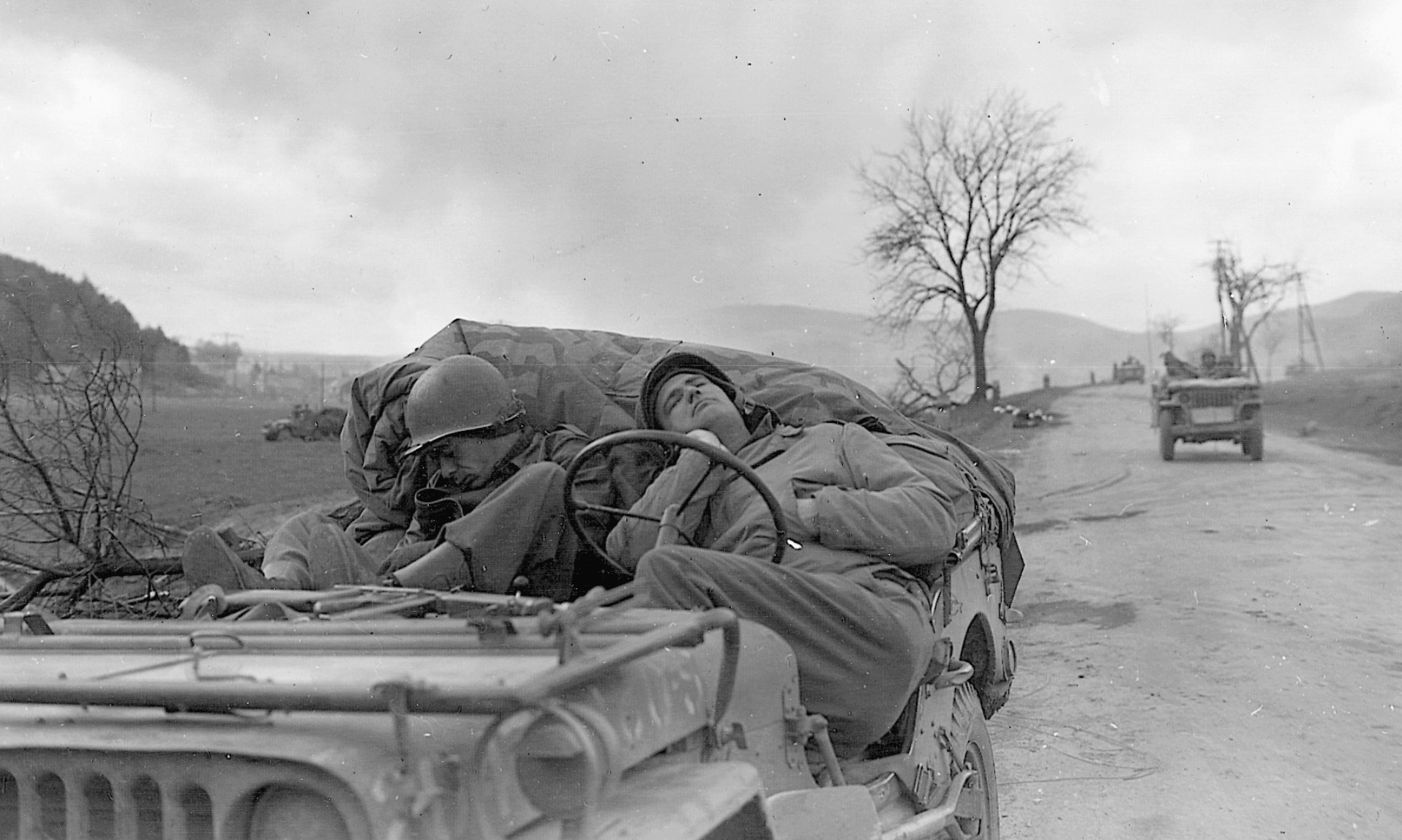
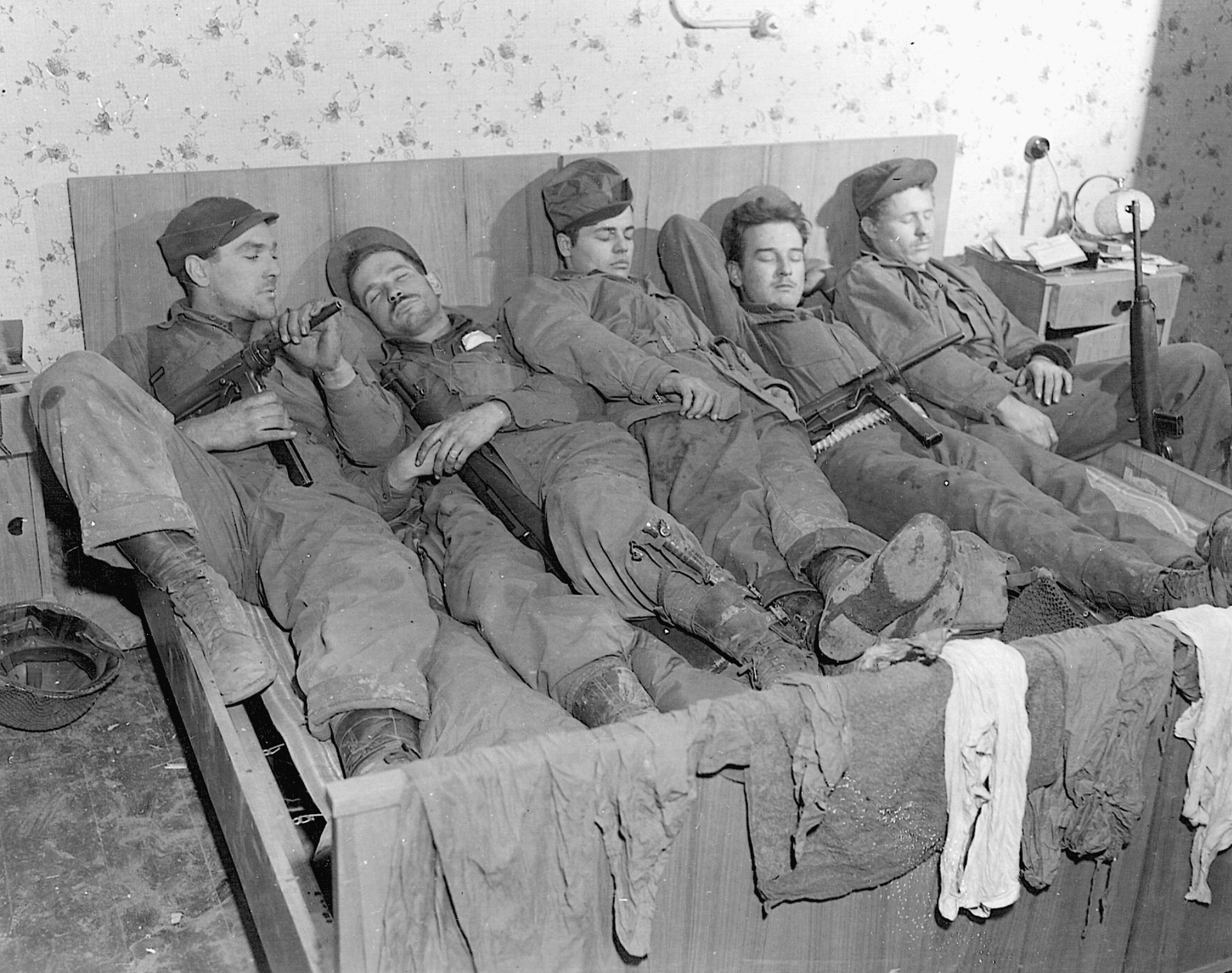
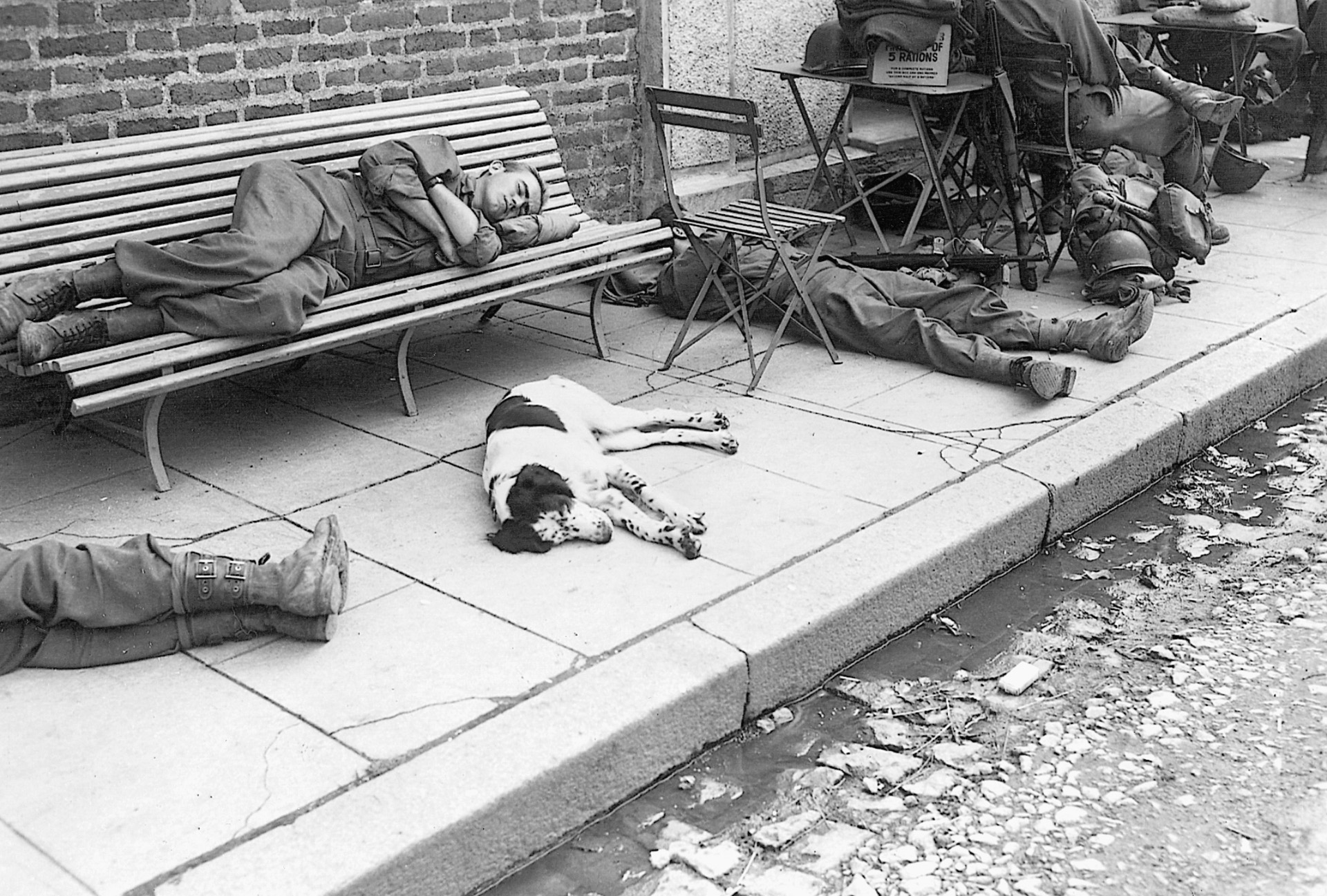
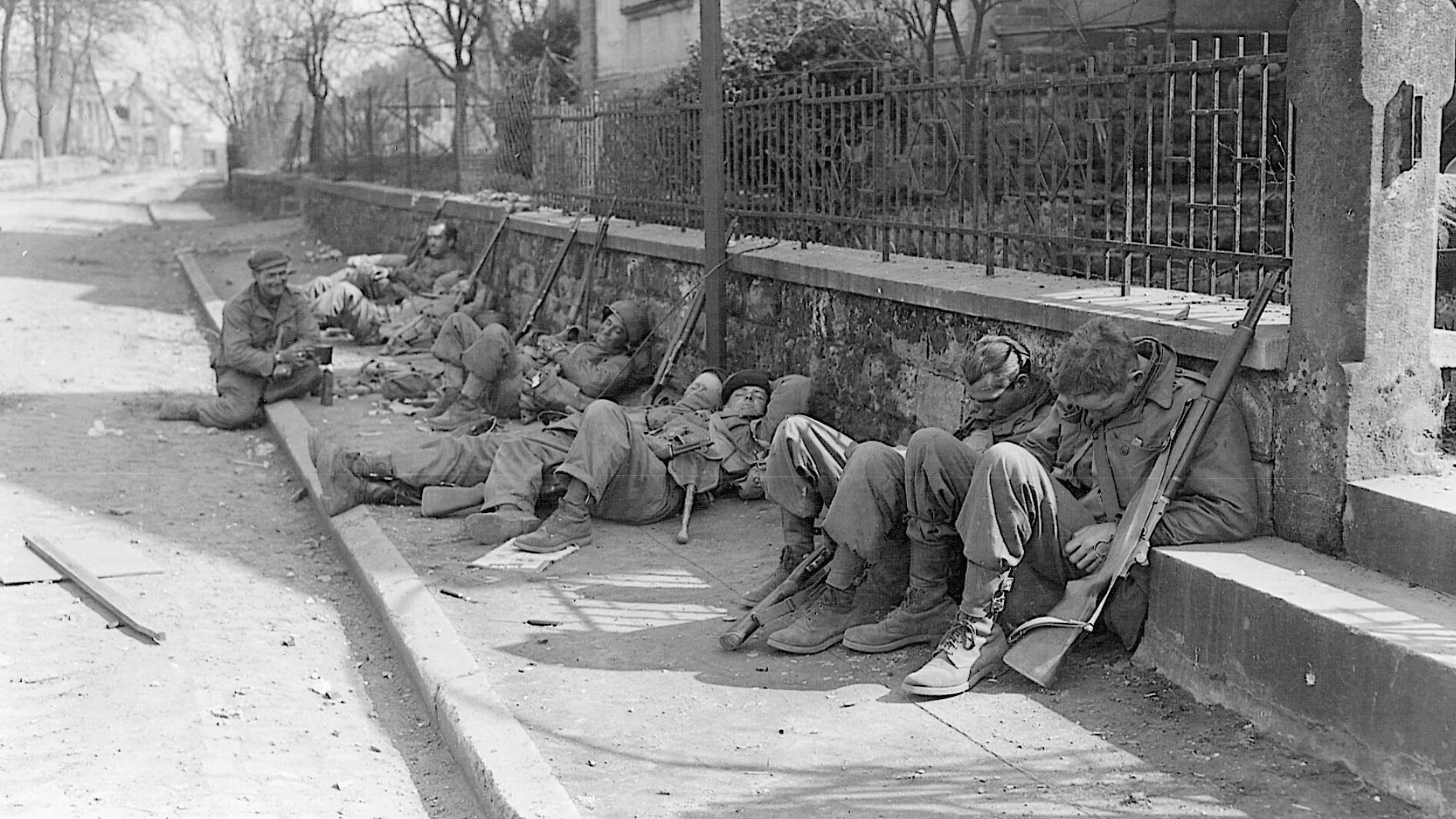
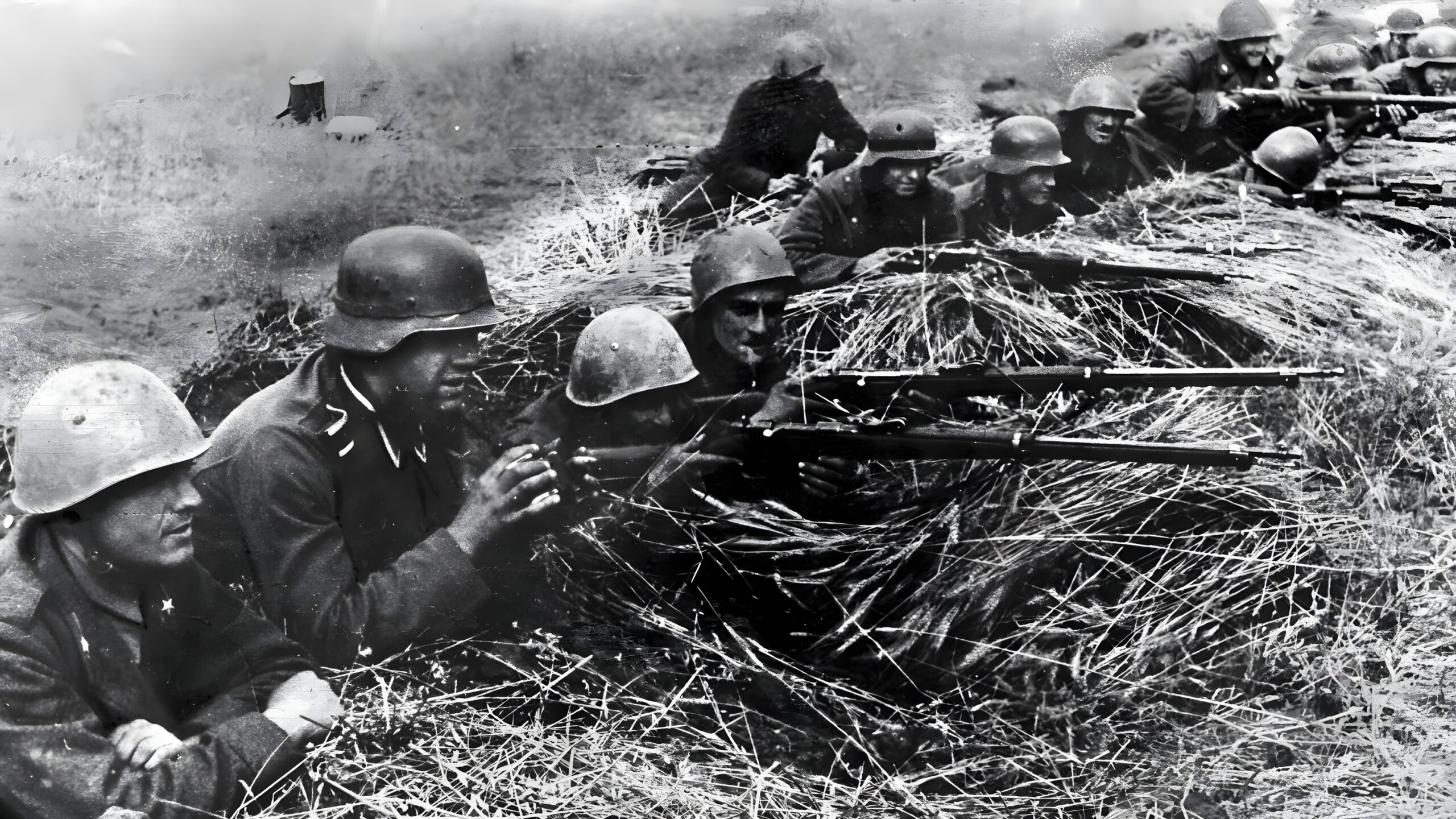
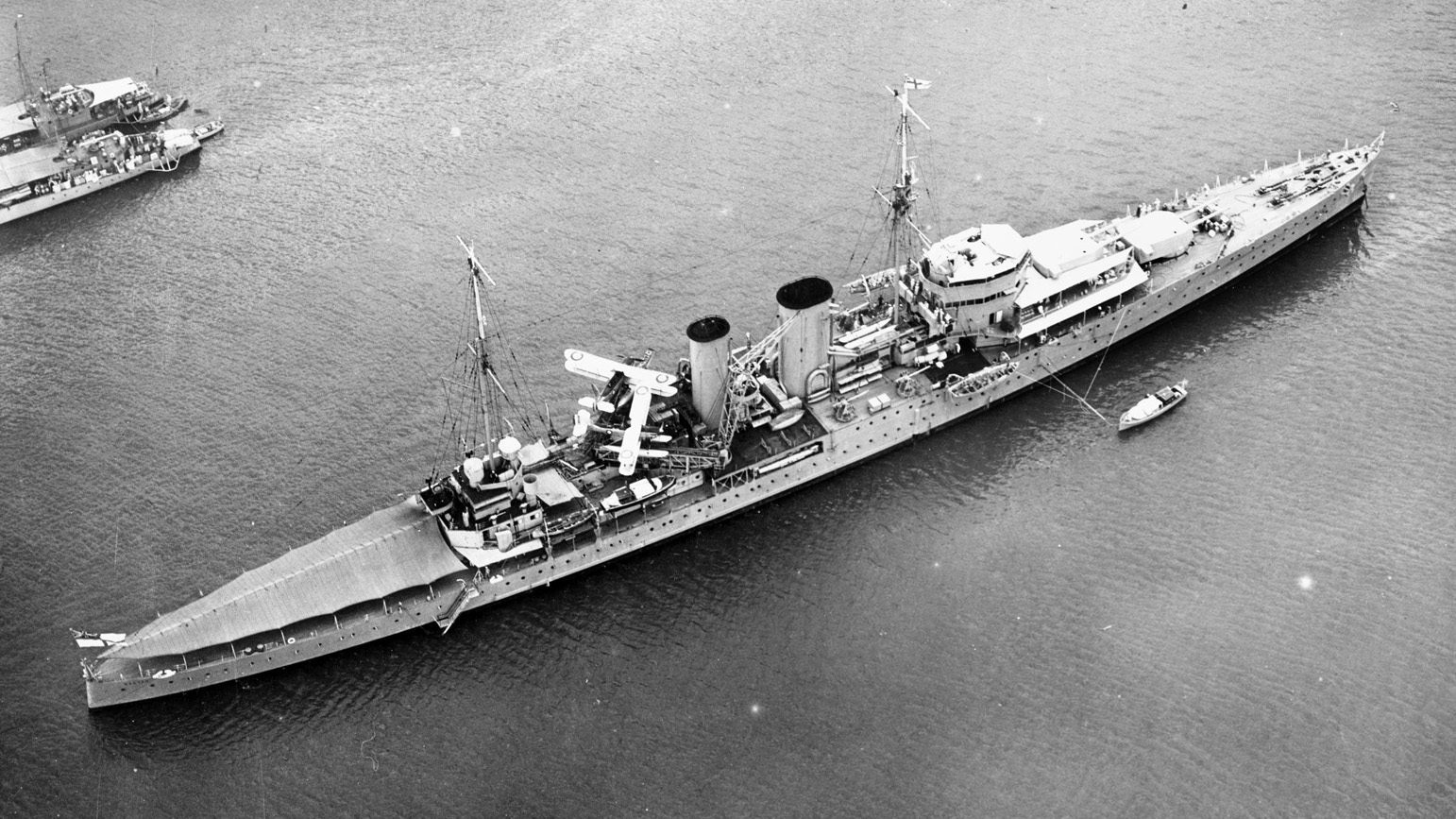
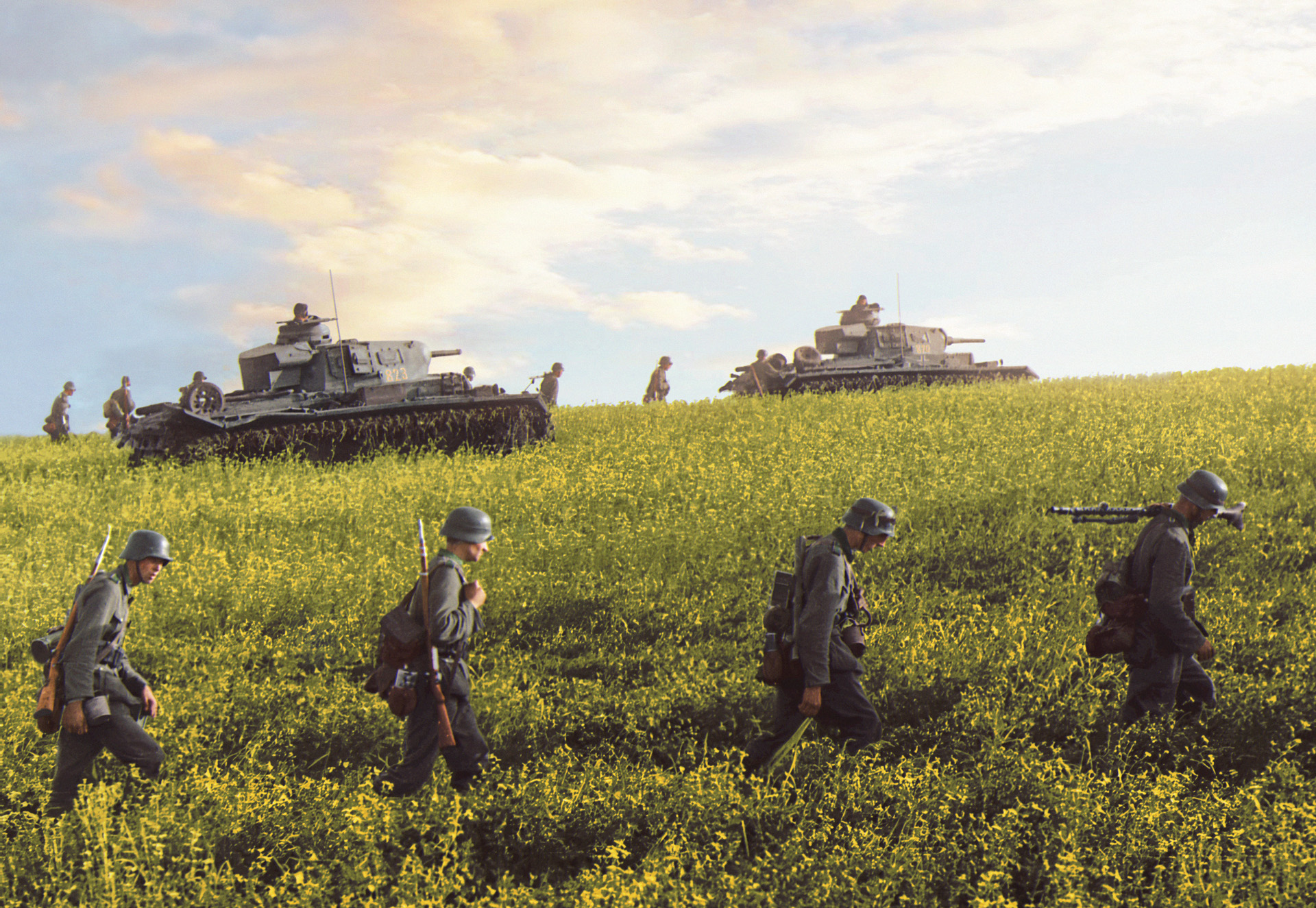
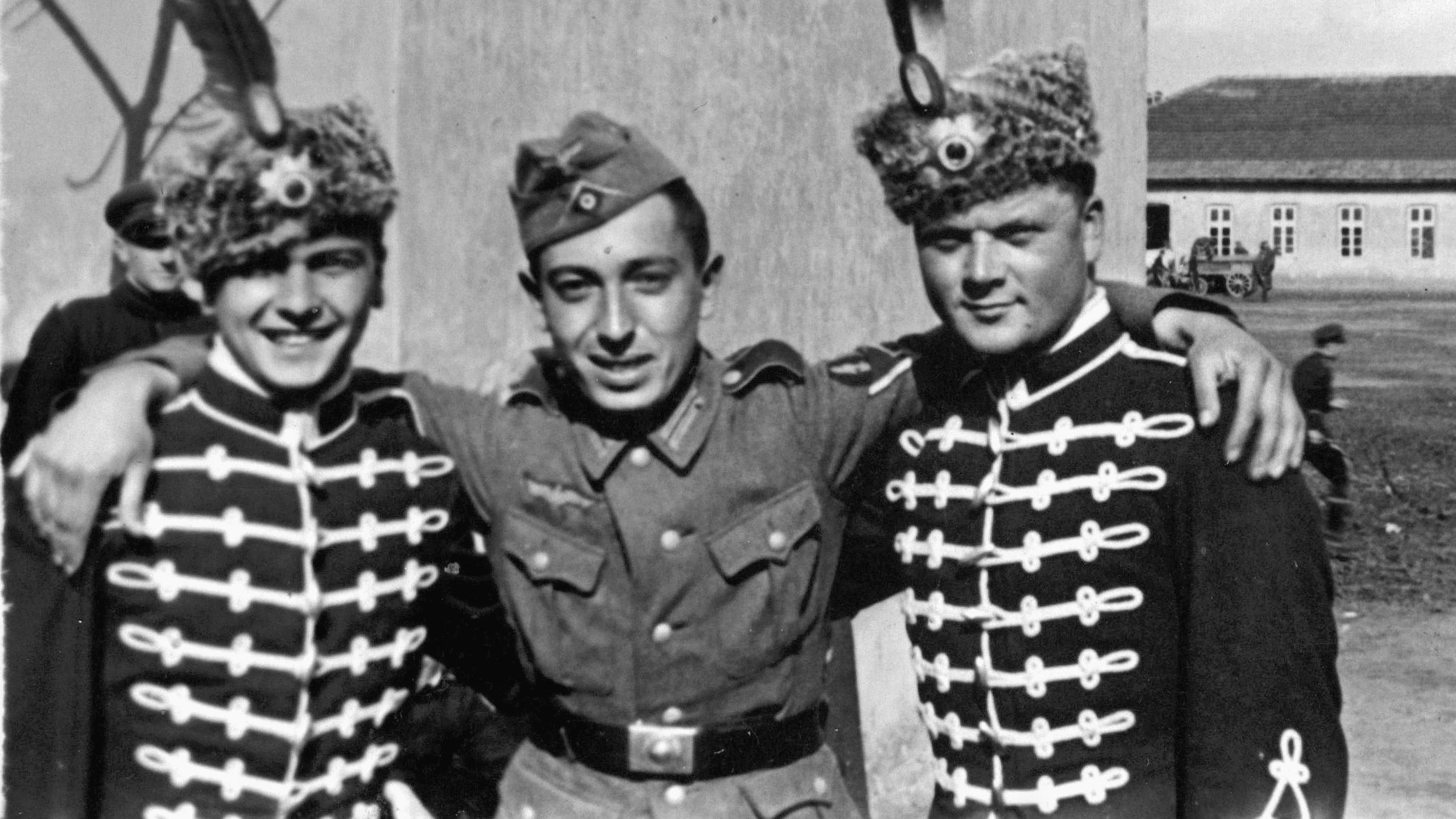
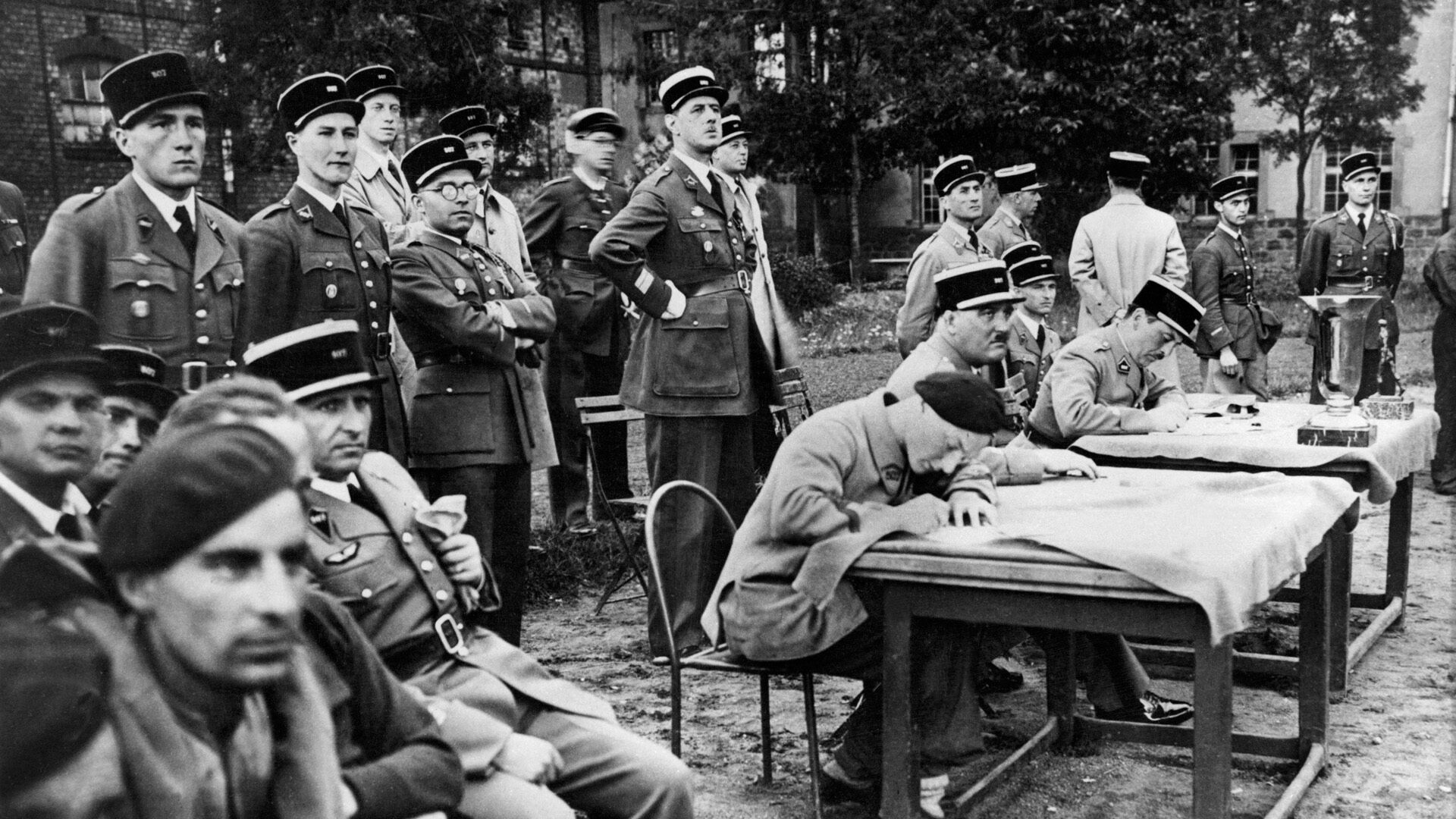
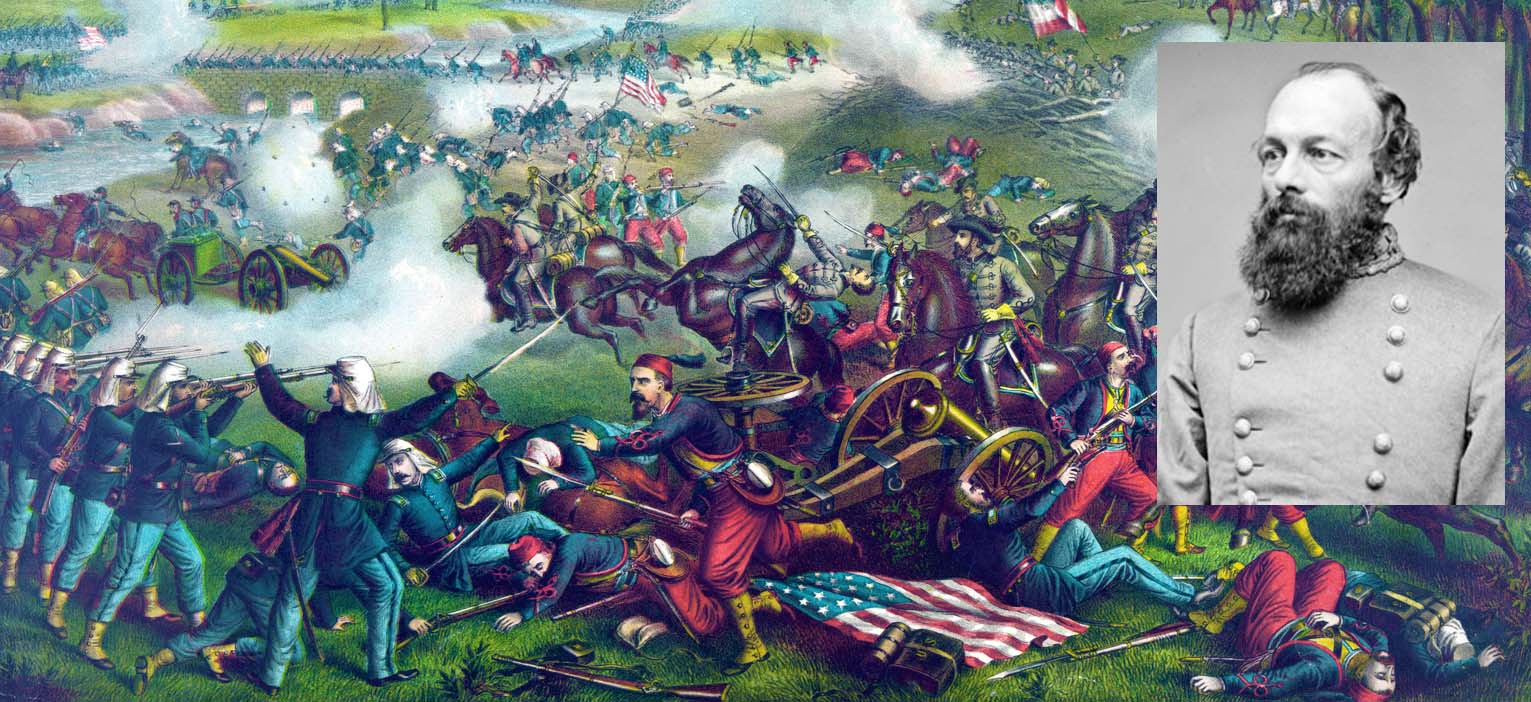
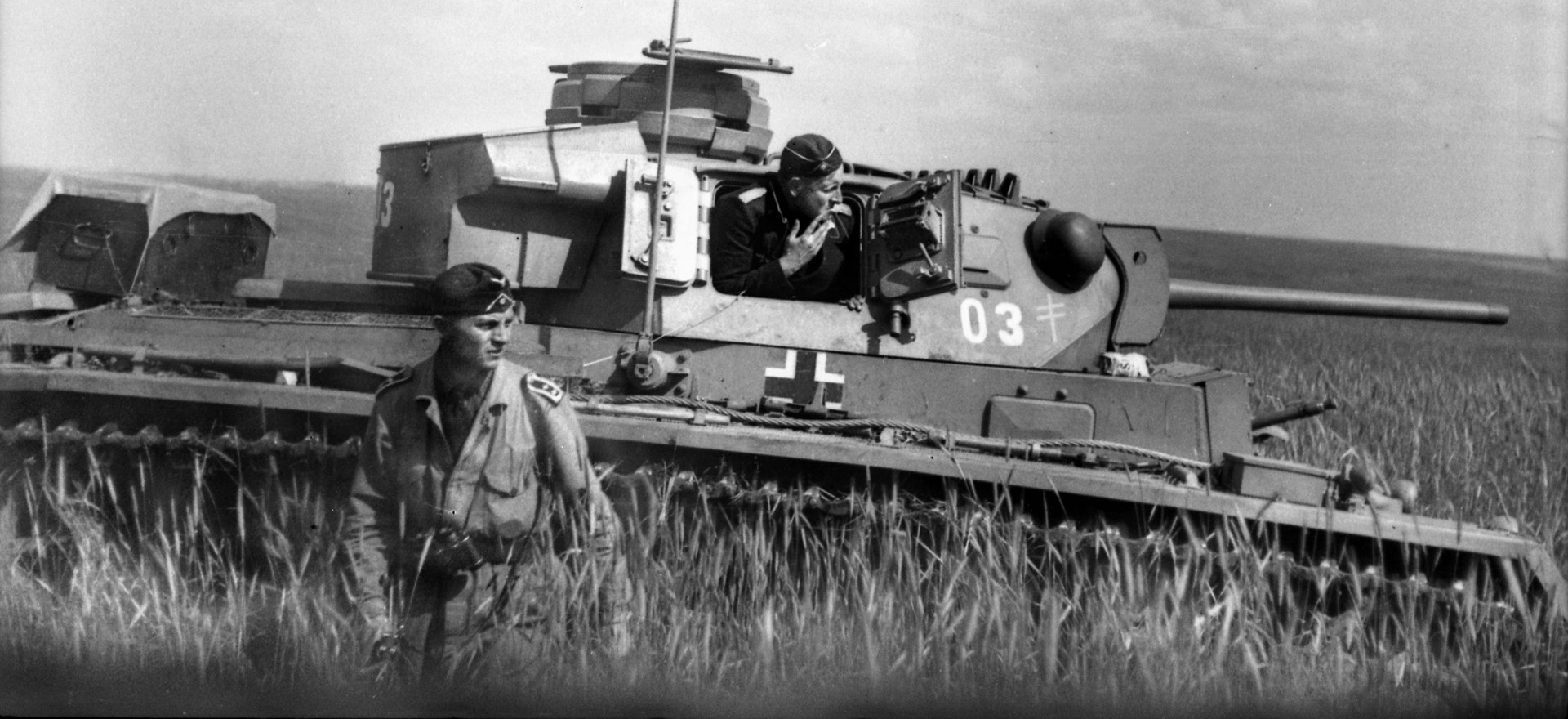
Join The Conversation
Comments
View All Comments